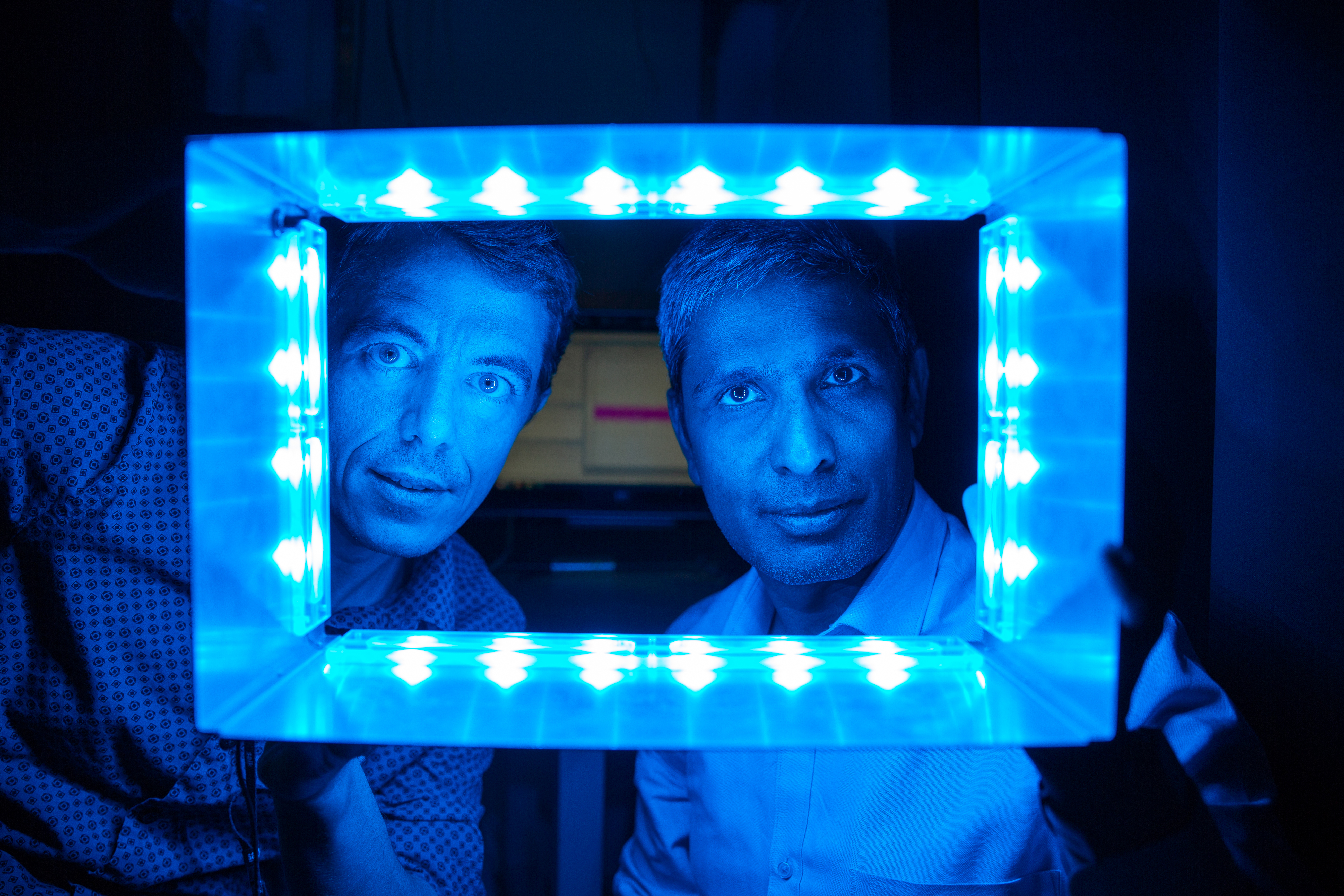 |
| (c) Salk Institute |
The results, published in Cell Reports, may help lead to new treatments for migraines, insomnia, jet lag and circadian rhythm disorders, which have been tied to cognitive dysfunction, cancer, obesity, insulin resistance, metabolic syndrome and more.
Since you’re here...we have a small favor to ask. More people are reading this blog that is completely free. Since Retina Global is a nonprofit, we have to be dependent on your support to sustain the work we do. Retina Global's work is important, since it not only provides help to disadvantaged people, but also is focused on providing resources for developing new treatments. What we do takes a lot of time, money and hard work. But we do it because we believe we have to help stop someone somewhere from going blind. So click here to donate to the cause to helping someone see again. Your donation of any amount makes a difference. Thank you!
The innermost later in the retina contains a tiny subpopulation of light-sensitive cells that operate like pixels in a digital camera. When these cells are exposed to ongoing light, a protein called melanopsin continually regenerates within them, signaling levels of ambient light directly to the brain to regulate consciousness, sleep and alertness. Melanopsin plays a pivotal role in synchronizing our internal clock after 10 minutes of illumination and, under bright light, suppresses the hormone melatonin, responsible for regulating sleep.
In the new work, the Salk researchers used molecular tools to turn on production of melanopsin in retinal cells in mice. They discovered that some of these cells have the ability to sustain light responses when exposed to repeated long pulses of light, while others become desensitized.
Conventional wisdom has held that proteins called arrestins, which stop the activity of certain receptors, should halt cells’ photosensitive response within seconds of lights coming on. The researchers were surprised to find that arrestins are in fact necessary for melanopsin to continue responding to prolonged illumination.
In mice lacking either version of the arrestin protein (beta arrestin 1 and beta arrestin 2), the melanopsin-producing retinal cells failed to sustain their sensitivity to light under prolonged illumination. The reason, it turns out, is that arrestin helps melanopsin regenerate in the retinal cells.
By better understanding the interactions of melanopsin in the body and how the eyes react to light, Dr. Panda hopes to find new targets to counter skewed circadian rhythms due to, for example, artificial illumination. Previously, his research team discovered that chemicals called opsinamides could block melanopsin’s activity in mice without affecting their vision, offering a potential therapeutic avenue to address hypersensitivity to light experienced by migraine sufferers. Next, the researchers aim to find ways to influence melanopsin to reset the internal clocks and help with insomnia.
Other authors include Salk postdoctoral researcher Megumi Hatori, now at Keio University School of Medicine in Tokyo; Kiersten Ruda and James Demas of St. Olaf College; and Salk former visiting graduate student Giorgia Benegiamo.
This work was supported by the Leona M. and Harry B. Helmsley Charitable Trust, the National Institutes of Health and the Glenn Foundation.
More about Retina Global here. We seek your support. Click here to donate.
No comments:
Post a Comment
Thanks for your comments. We will get back to you shortly if there is a need to respond to it.
- Admin, Retina Global
Read more on Retina Global.